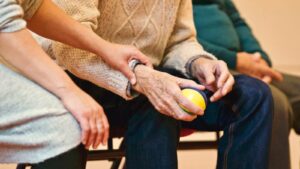More focus on human rights needed by healthcare services
Services need to improve how they provide care and treatment for people detained under the Mental Health Act (MHA) in a way that respects their human rights, the Care Quality Commission (CQC) has found.
CQC’s Monitoring the Mental Health Act in 2018/19 report, found that there has been an improvement in the number of people being given information about their rights and being offered the support of an Independent Mental Health Advocate (IMHA).
However, services need to do more to ensure that they are complying with their human rights duties.
As part of its work to monitor the Act, CQC carried out 1,190 visits to mental health wards in 2018/19 and met with 4,436 detained patients to discuss how the Mental Health Act and its Code of Practice were being applied to them.
Assessors requested 4,477 actions from providers to change the way care was being delivered to patients.
The CQC said people who are in long-term segregation can experience more restrictions than necessary and experience delays in receiving independent reviews of their situation. This is particularly true for people with a learning disability and autistic people.
It said people are not always receiving the care and treatment they need, with services struggling to offer appropriate options, both in the community and in hospital.
Which makes it difficult for patients, families and carers to navigate the complexity of the interface between the MHA, the Mental Capacity Act 2005 and the Deprivation of Liberty Safeguards.
Dr Kevin Cleary, CQC’s deputy chief inspector for Mental Health and Community Services, said: ‘The use of the MHA continues to rise and the overrepresentation of some Black and minority ethnic (BME) groups is a particular cause for concern.
‘More needs to be done nationally to address issues of inequality, but providers also have a responsibility to oversee how the MHA is working, including any impacts on human rights and equality issues.
‘The upcoming Government white paper detailing future reform of the MHA is a real opportunity for a more human rights-based approach. We will continue to work with our partners to ensure it supports people to have a real say in their care, that they are treated equitably and that their rights are protected.’
Responding to the report Vicki Nash, head of policy and campaigns at Mind, the mental health charity, said: ‘This is indisputable evidence that our mental healthcare system is on its knees.
‘It is disgraceful that people are dying because of a lack of beds, more people are being detained under the Mental Health Act than ever before and Black people are still four times more likely to be sectioned than White people.
‘These deep injustices are among the multitude of reasons why mental health legislation needs a complete overhaul.
‘It is equivalent to negligence that there has been a fall in the number of mental health beds without an alternative in place. The expansion of community mental health services can’t come soon enough. In the meantime, providers must do whatever it takes to ensure people get the right care at the right time.
‘It is unforgivable that people’s human rights are not being respected when they are detained. Too many people are being unnecessarily segregated and enduring unjustifiable restrictions on their freedom, even after they have left the hospital.
‘Complex overlaps in different parts of the law are also leaving families confused and lacking the right protections. We must see the limitations placed on people’s freedom being regularly reviewed and the UK Government has to address the mess of mental health legislation.
‘The urgency of reforming the Mental Health Act cannot be overstated. In recent weeks the Health Secretary has asserted that he is prioritising mental health and yet we are still waiting for the Government to formally respond to the Mental Health Act Review, with its delayed White Paper fast becoming a pipe dream.
‘The measure of this country is how it treats us when we are at our most vulnerable. We expect our Government to meet that test. Further delay is simply not an option.’
Photo Credit – Pixabay
















